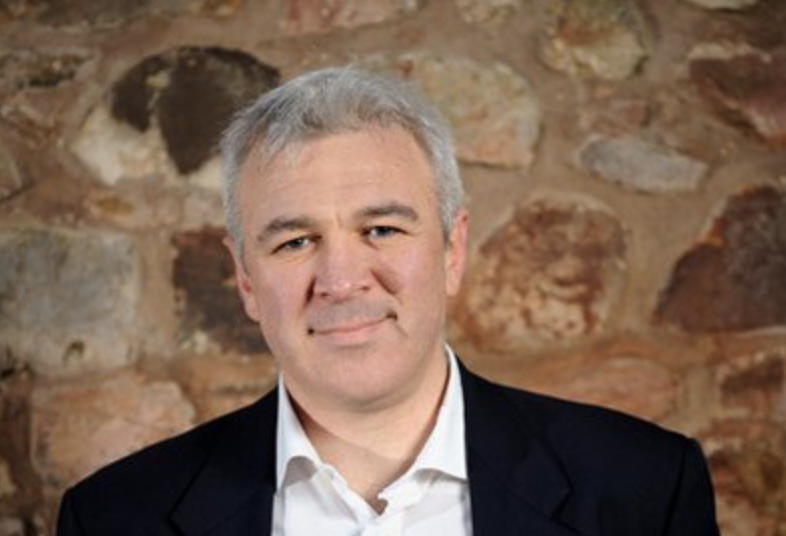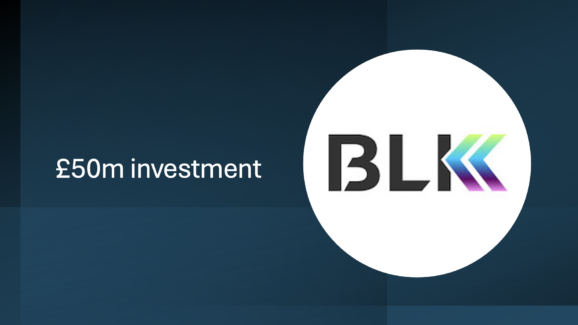The man behind Open Banking – Interview with Gavin Littlejohn

Open banking is a hot topic at the moment. On 13th January 2018, the second Payment Services Directive (PSD2) came into force, bringing Fintech access to payments and payments data into the scope of regulation in the EU for the first time. This is a major change in the industry, one that will certainly generate a lot more innovation.
One of the people behind the open banking movement is Gavin Littlejohn. We met with Gavin to get his view on what’d been achieved to date in terms of open banking standards but also on the future of the industry.
What got you interested in open banking?
Money Dashboard was my second fintech business and I began working on it in 2005, making it a pioneer of the independent services using an open model of account access. Customers could engage all of their different financial brands in a unified service. At the time and for many years thereafter, banks were strongly discouraging customers from using Money Dashboard and other such services.
Whilst a battle raged on social media between the fintech participants and banks about whether the data belonged to the customer or the institution, and whether the customer had a right to share their financial data with other firms, it was not until in 2012 and 2013 when my own bank provider wrote to me discouraging me from using Money Dashboard and similar services that it became obvious that more fundamental changes were needed.
We engaged with the Office of Fair Trading (now the Competition and Markets Authority (CMA) and I also managed to secure UK government cabinet level support through HM Treasury to drive through some changes.
We continue to campaign for all customer financial data to be made available for the customer to share in a safe and helpful way, but at the time the train leaving the station was in payments, with the EU wide PSD2 drafting nearly completed. HMT identified a way to include access to only payment data, rather than all financial data, by coupling account aggregation or data access to PSD2.
This was a late addition to the directive. HMT agreed to push for this change and suggested that I lead the formation of a trade association to give the banks and regulators a party to negotiate with.
That’s why the Financial Data and Technology Association (FDATA) that I’m chairing was created. When I left Money Dashboard in 2015, I was asked by the fintech industry to stay on and lead the campaign for standards through FDATA.
How do you explain the fact that the UK seems to be leading the charge?
PSD2 set the legal and regulatory basis of third party market access, including providing some clarity on the liability model, but did not do as good a job in establishing the technology standards, which was envisaged as more of a competitive market rather than the standards based approach that the UK market sought to achieve.
HM Treasury encouraged the fintech and banking industry to negotiate the design principles of an Open Banking Standard in 2015. FDATA had a significant role in this, with our members co-chairing 4 out of the 6 working groups. It was a key milestone and set the framework for a standards based approach which is now a widely admired concept. The key thing was that it was an inclusive process, with lots of contributions to help shape and refine.
In 2016, the CMA, who had been following the process carefully during their review of effective competition in banking, decided to step in and require that the nine largest UK banks by current account, form an entity to fund and deliver the Open Banking Standard, creating an impetus for execution that is both standardised and delivered earlier than some other countries that are also exploring open banking. I was asked to represent the fintech interest on the steering group of the Open Banking Implementation Entity.
Our fintech firms are already testing APIs from the banks and a lot of attention is being paid on making sure they all conform to the standards. There is much work to do, but we are moving in the right direction.
Where do you see Scotland’s biggest opportunity around Open Banking?
We are lucky in that we have a great concentration of knowledge and talent in this space. Some Scottish companies have mastered the data. Money Dashboard, the ID Co. FreeAgent and Castlight have shown real mastery of the categorisation of customer transaction data and have built some business models on top that customers really value. As a result of that, some Scottish firms are already market leaders in this space.
How do you think Open Banking will benefit society as a whole?
Open Banking will create an environment where the quality of the experience will empower the customer and reduce inertia. Data science will enable innovation to be at the customer level not at the product level. In short, more customers will be on the right products at the right time and at the right price, fraud will be reduced as the standards kick in and financial inclusion will improve for many as data driven innovation solves more customer problems.
Do you see Open Banking widening its scope to insurance, savings products and other asset classes?
Some of the technical artefacts of Open Banking Implementation Entity ”“ such as the Directory – might be used in other markets. As customers we all have a wide range of financial relationships. They are all part of what is called the “financial self”. To be fully formed you need all your financial data to be enabled so we can empowered to make decisions in full possession of the facts and risks. It would be really strange ”“ in the long term ”“ for customers to be able to access half of their financial data under a legal basis through a tech standard and for the other half to be out with the liability model. It has surely all to be brought into the standard methodology.
Do you think Open Banking will allow for disruption of a scale similar to the one observed in other sector such as hotel, transport and travel?
Providing they can create services, then yes. Both fintechs and banks can position themselves as the 3rd party provider. What I mean is that banks don’t have to be losers here. If they win the customer consent with a strong proposition, they can access data from other banks just as the fintech firms do. Banks who don’t embrace this change might get reduced in their importance. Open Banking will enable people to optimise their financial self (affordability, lending, AML, savings, investment, money management). We’ve only scratched the surface of this. The open banking movement is gaining momentum across the world and the level of innovation will be transformational. FDATA is increasingly a global trade association and is operating now on several continents.
Are you happy with the current standards around Open Banking?
Happy with technical output of the UK Open Banking, yes. The specifications are strong. Banks are now building. We now need to get the other banks to converge as well as credit card issuers and others. A good outcome would be to have an internationalisation of the artefacts to get to a point where standards are the same.
What role do you see FinTech Scotland playing in ensuring Open Banking become an opportunity for the Scottish economy?
FinTech Scotland can help the country position itself as a Global leader in data science with top research coming from universities, some firms, the Data Lab and the Edinburgh Parallel Computing Centre. We have the opportunity to combine data with leading data science skills and deep insight to customer problems in financial services to produce a really strong cluster.
You’re travelling a lot at the moment; can you tell us where you’ll be in the next few months and why?
I’m just back from Singapore and have been working with the North American FDATA group and the Indian Group. Coming up I’ve further work in these markets, plus plans are forming for further visits in the EU, Central and Eastern Europe, South America, China, S.E. Asia, Australia and Russia.
If we don’t deliver standards now it will be very difficult to do it later. Collaboration and sharing of issues and best practise between markets and regulators is a sensible step.
The only chance for convergence to a single standard is now.



